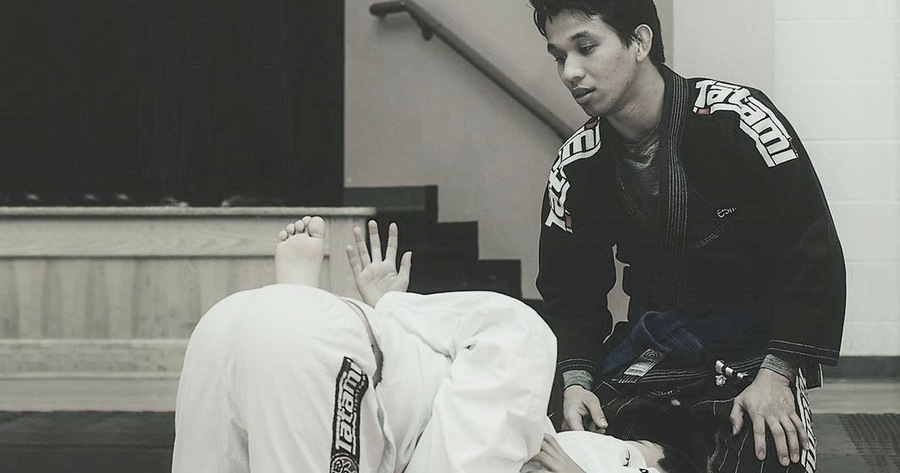It's been eight years since I saw this student. He is a full-grown adult, and I struggled to create his image in my mind. I curled in my car after the call; I cried to my wife as an odd mixture of feelings overwhelmed me—despondence, anger, frustration, honor and gratitude.
It's not the first time I have had this call.
In the 13 years since my wife and I founded Higher Ground, we've had to bury students, ranging from cancer to accidents to violence. When my wife and I established Higher Ground, I never imagined we would be part of such intimate moments in people's lives, nor did I believe this call would come at the backdrop of a pandemic that has claimed the lives of at least two people we knew, while the nation's racial tensions escalate. During these moments, I realize how powerless and useless I am and yet how powerful and relevant I was for this student.
Among youth workers, being exposed to traumatic events or immersing ourselves in the traumatic lives of the people we serve is a shared experience. For those who work in vulnerable communities and populations, our exposure to the vast range of tragic stories causes a condition known as Compassion Fatigue—characterized by emotional, physical, and spiritual exhaustion often associated with those providing care for another. While it has many symptoms, it often leads to a diminished ability to empathize or desensitization and is usually a direct result of Vicarious Trauma, also known as Secondary Traumatic Stress (STS), a cousin of PTSD.
People regularly exposed to other people's trauma begin to feel the same symptoms of people who have Post-Traumatic Stress Disorder. They exhibit anxiety, agitation, irritability, emotional and physical exhaustion, depression, apathy, hypersensitivity, limited tolerance for stress, and difficulty concentrating. When left unchecked, this leads to cognitive symptoms that can include self-blame, changes in belief systems, reduced sense of accomplishment or efficacy, trouble sleeping, nightmares, headaches, nausea, self-isolation, and decreased pleasure in other activities.
While burnout is a collective experience in any job, Compassion Fatigue is different and can be compounded with burnout. Burnout means you need a break, you've been working too hard and you need to take a rest. No amount of vacation will resolve Compassion Fatigue because, much like PTSD, it affects the cognitive and executive functions of our brain. This is the reason why health care workers, teachers, mental health professionals, church workers, social workers, people who work with vulnerable populations and first responders can be in a constant state of being fatigued—despite taking vacation or rest days.
When left unchecked, we watch competent, passionate people who walked into the industry slowly become zombies who treat each client as if they're just a number, lose effectiveness, and become seemingly apathetic to their stories. Or worse, we watch people slowly become jaded, pessimistic and unhealthy humans who are but a shadow of their former selves—engaging in actions that are uncharacteristic of them.
How many people in the industries I mentioned are depressed, detached and unhealthy?
Compassion Fatigue is an occupational hazard but is often ignored, unknown or, worse, touted as a badge of courage in workplaces that require caring for others. People in care work often have high empathy or are victims of trauma themselves, entering the profession with a sense of purpose, hoping to use their knowledge and experience to change someone's life for the better and fight for justice. In the world of youth development, some staff have unresolved childhood memories that consistently get revisited by hearing the stories of those they are helping.
Compassion is what makes us strong. The wounds and the scars that most of us have endured in our life is the very reason for our empathy and ability to fight for our most vulnerable populations. And while our constant exposure to trauma is hazardous, it's also what gives us the passion to keep fighting the good fight.
At this point in history, our world could use more compassionate people like us. And while Compassion Fatigue is an unavoidable occupational hazard, we can band together and support each other's healing. As the constant collective trauma of this pandemic rages on while being inundated with our nation's divide, like wounded warriors in the frontlines, we can carry each other and endure for the sake of the youth and our future.
Written by Jansen Azarias-Suzumoto, CEO/President and Co-Founder, Higher Ground. Jansen is an NAA Ambassador member and an NAA 2017 Next Generation of Afterschool Leaders honoree.
Photo courtesy of Jansen Azarias-Suzumoto.

